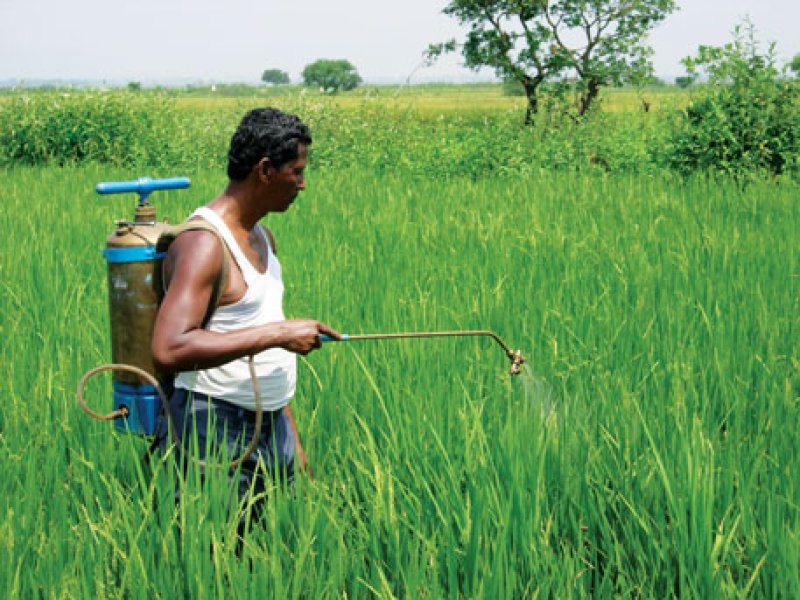The world is likely to face food shortages within 20 years if pesticides and genetically modified crops are shunned, according to the head of the world’s biggest pesticide manufacturer.
J Erik Fyrwald, CEO of Syngenta, also said the technologies to produce more food from less land are vital in halting climate change, but that better targeting will mean farmers around the world will use less pesticide in future.
The widespread use of pesticides is coming under increasing pressure as their negative effects on bees and other wildlife become more apparent. The EU banned neonicotinoid insecticides from fields in April and gave the weedkiller glyphosate a shorter renewal period than expected in November.
…
“If we don’t keep getting better with technology that helps feed the world with less greenhouse gas emissions, I think we are going to have food availability issues and the climate is going to get much worse from agriculture,” he said. “There could very well be, 10 to 20 years from now, significant issues around feeding the world.”
The necessity of pesticides has been challenged by a series of recent reports, with a UN study calling the idea that pesticides are vital to feeding the world a “myth”, a scientific study showing many farms could slash pesticides use without losses and another warning that their industrial-scale use cannot be assumed to be safe.
Read full, original article: High risk of food shortages without pesticides, says chemical giant































